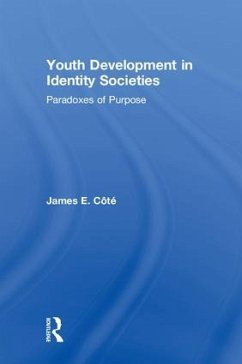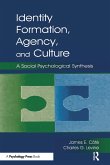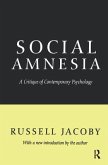"Youth Development in Identity Societies is an important wake-up call. The book shines light on the challenges youth in identity societies encounter as they grope their way-often without the benefit of an orienting sense of identity or purpose-into adulthood. Not since Erik Erikson has a researcher offered such an insightful and innovative diagnosis of the problem and possible solution to this increasingly difficult transition. As such, this book is a must read for practitioners, researchers, and others concerned with the well-being of today's young adults." - Kendall Cotton Bronk, Claremont Graduate University, USA
"A fascinating examination of the identity crisis gripping today's youth. James Côté is the perfect scholar to write such a book. His knowledge and ability to explain and integrate multiple perspectives, from the sciences to the humanities, makes for a unique and particularly insightful take on the issues involved." - Steven L. Berman, University of Central Florida, USA
"This book is a most astute and engaging assessment of challenges facing modern societies in preparing youth for adulthood. Youth malaise and lack of purpose are situated in long-term trends-the decline of 'role societies,' individualization of the life course, and attempts to solve social inequality via universal higher education." - Jeylan T. Mortimer, University of Minnesota, USA
"A fascinating examination of the identity crisis gripping today's youth. James Côté is the perfect scholar to write such a book. His knowledge and ability to explain and integrate multiple perspectives, from the sciences to the humanities, makes for a unique and particularly insightful take on the issues involved." - Steven L. Berman, University of Central Florida, USA
"This book is a most astute and engaging assessment of challenges facing modern societies in preparing youth for adulthood. Youth malaise and lack of purpose are situated in long-term trends-the decline of 'role societies,' individualization of the life course, and attempts to solve social inequality via universal higher education." - Jeylan T. Mortimer, University of Minnesota, USA









